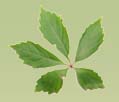
Poetry Prose and Other Words
by Ken Ingham
home
- poems - essays
- autobio - retroblog
music - reading - other - Gaia
My First Encounter with Gaia Theory
(excerpt from my autobiography)
One of the most thought-provoking and influential classes I ever took was one entitled Gaia Theory: Its Science and History, taught by Martin Ogle, then resident naturalist at Potomac Overlook Park in McLean, Virginia. Through reading Lives of a Cell and other works of Lewis Thomas, I was already sensitized to the notion that all life is interconnected. But it was James Lovelock who put the notion on a scientific basis by advancing the hypothesis that the global biome behaves like a single living superorganism capable of regulating its environment, especially temperature, through manipulation of the chemical composition of the global green house window, i.e., the atmosphere.
Lovelock's friend, the novelist William Golding (Lord of the Flies), told him that such a sweeping theory deserved an elegant name and suggested Gaia, after the Greek Goddess of Earth. During Ogle's class I read several more books on the subject and became progressively more intrigued by the notion that I was part of a larger living organism in the same way that the cells of my body were part of me. From there I began to wonder if my consciousness might also be part of a larger, collective one, something akin to the noösphere of Teilhard de Chardin proposed in his Phenomenon of Man.
The melding of Lovelock's global organism with de Chardin's vision of an emergent collective consciousness evoked a marvelous metaphor that helped me organize my thoughts about nature and conservation. That amalgam also gave me something to believe in. It focused my search for spiritual meaning. Could Gaia, I wondered, also have an immaterial component, something like a collective soul of which mine was a part? Wishful thinking perhaps but easier for me to imagine than most of what was being promulgated. Suffice it to say that if everyone chose to believe in or at least learn about Gaia theory, their attitudes toward nature and the environment would be transformed. If children were taught from a young age to respect the living planet and nurture its good health because you are part of it and it is part of you, many of our environmental problems would get more attention.
Of course, Gaia theory does not include the notion that self-regulation of the earth organism is for the benefit of we humans. The diverse collection of living organisms that constitutes Gaia will continue to evolve. Various species will come and even more will go. But if the human species passes into extinction, it will be the first with sufficient wisdom to have anticipated, and possibly have prevented that outcome.